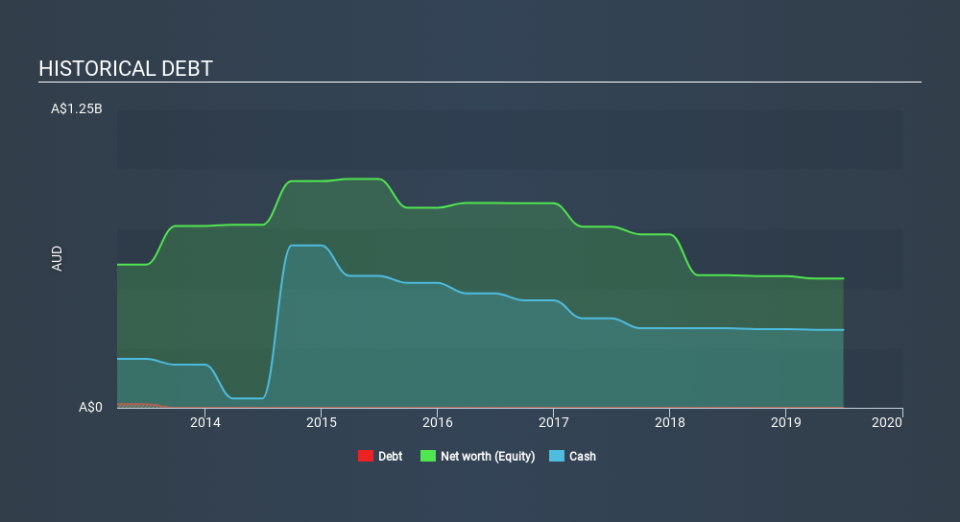Some Karoon Energy (ASX:KAR) Shareholders Have Copped A Big 67% Share Price Drop

We think intelligent long term investing is the way to go. But unfortunately, some companies simply don't succeed. Zooming in on an example, the Karoon Energy Ltd (ASX:KAR) share price dropped 67% in the last half decade. That is extremely sub-optimal, to say the least. Even worse, it's down 28% in about a month, which isn't fun at all. But this could be related to poor market conditions -- stocks are down 12% in the same time.
View our latest analysis for Karoon Energy
We don't think Karoon Energy's revenue of AU$2,330,658 is enough to establish significant demand. You have to wonder why venture capitalists aren't funding it. As a result, we think it's unlikely shareholders are paying much attention to current revenue, but rather speculating on growth in the years to come. For example, they may be hoping that Karoon Energy finds fossil fuels with an exploration program, before it runs out of money.
We think companies that have neither significant revenues nor profits are pretty high risk. There is almost always a chance they will need to raise more capital, and their progress - and share price - will dictate how dilutive that is to current holders. While some such companies go on to make revenue, profits, and generate value, others get hyped up by hopeful naifs before eventually going bankrupt. Some Karoon Energy investors have already had a taste of the bitterness stocks like this can leave in the mouth.
When it last reported its balance sheet in June 2019, Karoon Energy could boast a strong position, with cash in excess of all liabilities of AU$286m. This gives management the flexibility to drive business growth, without worrying too much about cash reserves. But since the share price has dropped 20% per year, over 5 years , it seems like the market might have been over-excited previously. You can click on the image below to see (in greater detail) how Karoon Energy's cash levels have changed over time. You can click on the image below to see (in greater detail) how Karoon Energy's cash levels have changed over time.
It can be extremely risky to invest in a company that doesn't even have revenue. There's no way to know its value easily. Would it bother you if insiders were selling the stock? I would feel more nervous about the company if that were so. It costs nothing but a moment of your time to see if we are picking up on any insider selling.
What about the Total Shareholder Return (TSR)?
We'd be remiss not to mention the difference between Karoon Energy's total shareholder return (TSR) and its share price return. Arguably the TSR is a more complete return calculation because it accounts for the value of dividends (as if they were reinvested), along with the hypothetical value of any discounted capital that have been offered to shareholders. Karoon Energy hasn't been paying dividends, but its TSR of -64% exceeds its share price return of -67%, implying it has either spun-off a business, or raised capital at a discount; thereby providing additional value to shareholders.
A Different Perspective
Investors in Karoon Energy had a tough year, with a total loss of 18%, against a market gain of about 3.5%. However, keep in mind that even the best stocks will sometimes underperform the market over a twelve month period. However, the loss over the last year isn't as bad as the 18% per annum loss investors have suffered over the last half decade. We'd need to see some sustained improvements in the key metrics before we could muster much enthusiasm. While it is well worth considering the different impacts that market conditions can have on the share price, there are other factors that are even more important. Consider for instance, the ever-present spectre of investment risk. We've identified 2 warning signs with Karoon Energy , and understanding them should be part of your investment process.
Karoon Energy is not the only stock insiders are buying. So take a peek at this free list of growing companies with insider buying.
Please note, the market returns quoted in this article reflect the market weighted average returns of stocks that currently trade on AU exchanges.
If you spot an error that warrants correction, please contact the editor at editorial-team@simplywallst.com. This article by Simply Wall St is general in nature. It does not constitute a recommendation to buy or sell any stock, and does not take account of your objectives, or your financial situation. Simply Wall St has no position in the stocks mentioned.
We aim to bring you long-term focused research analysis driven by fundamental data. Note that our analysis may not factor in the latest price-sensitive company announcements or qualitative material. Thank you for reading.

 Yahoo Finance
Yahoo Finance 
